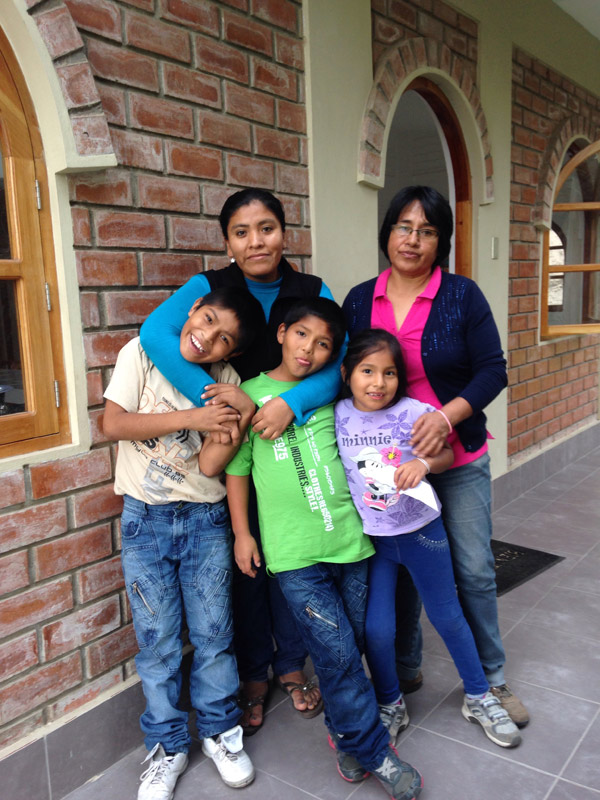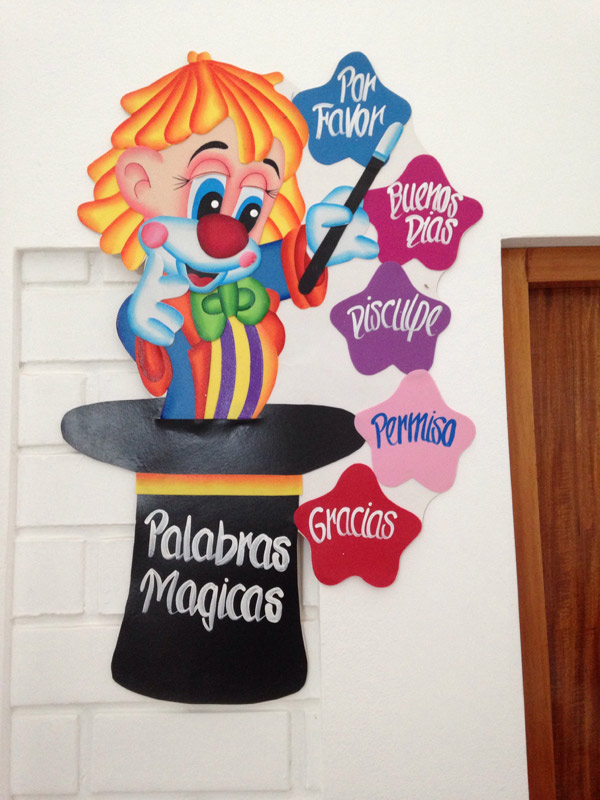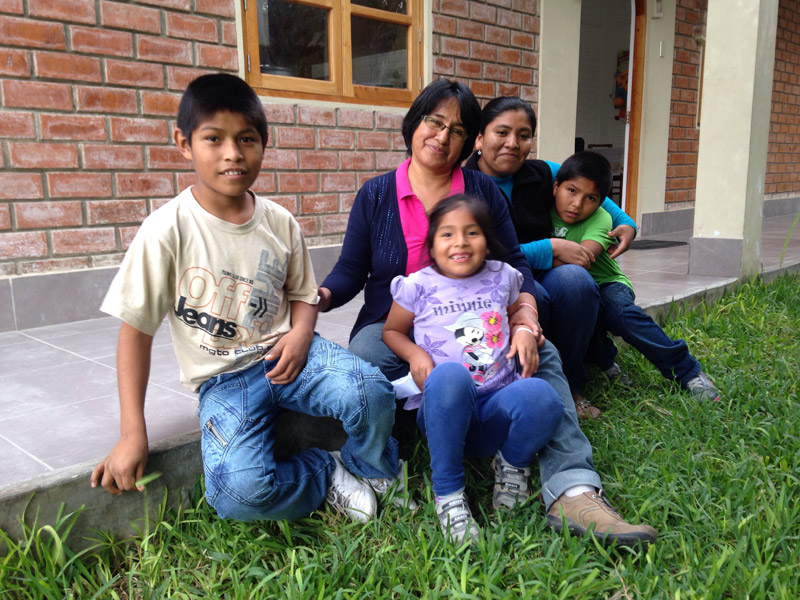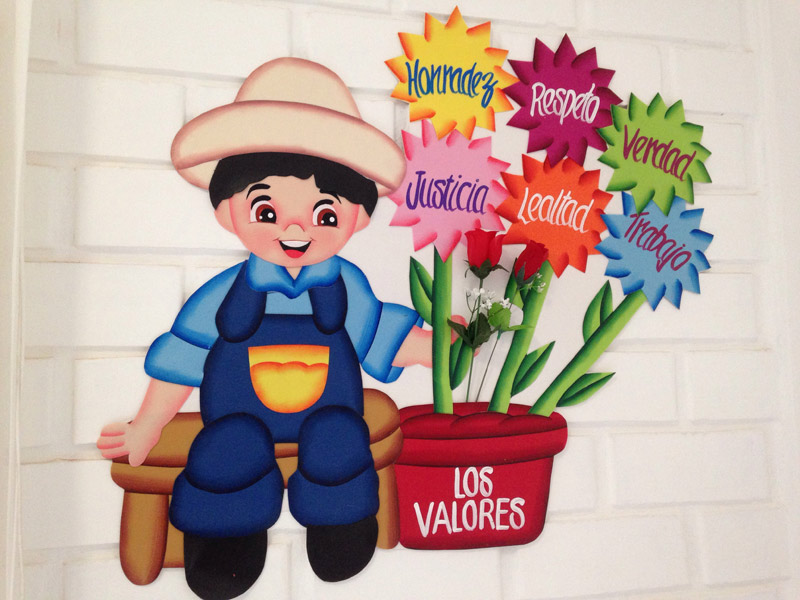Daniel Swaps Being a Child of the Streets for a Real Family

The marks on Daniel Silva’s arms speak of abuse, but it is his eyes that tell the whole story.
He is smiling when I meet him, proudly showing off his new room, with his racing car bedspread and a window looking out onto trees and green playing fields.
 Even when smiling, though, Daniel is hesitant, eager to please. When he hugs, he does not let go.
Even when smiling, though, Daniel is hesitant, eager to please. When he hugs, he does not let go.
It is hard for him to believe his new home is real, his SOS mother, Mercedes Ramos Segura, confides. Before coming to live at the SOS Children’s Village in Pachacamac, Peru, Daniel slept on cardboard boxes on the floor. His father beat him constantly. One day, after stealing his father’s money from a box to buy himself a toy car, his father beat him particularly brutally and put him out on the street. After a while, the neighbours called the authorities and Daniel was taken into care.
 In Peru, around 550,000 children grow up without parental care. They are either orphans or come from dysfunctional families who neglected them at an early age. It is not uncommon for children to abandon their families where they often experience severe physical abuse. Domestic violence is a growing problem in Peru. Many children suffer in silence as they are afraid of retaliation or punishment by family members.
In Peru, around 550,000 children grow up without parental care. They are either orphans or come from dysfunctional families who neglected them at an early age. It is not uncommon for children to abandon their families where they often experience severe physical abuse. Domestic violence is a growing problem in Peru. Many children suffer in silence as they are afraid of retaliation or punishment by family members.
Daniel arrived in the village in April 2015, along with his new SOS sister Sarah and brother Mark. Sarah, the youngest, at 5, adapted the fastest, says Mercedes, or “Meche” as the village children call her.
“She stuck to me straight away, called me mama,” says Meche. “And she loves having a new home, a proper family.”
Mark, 7, is adapting more slowly than his new siblings. At his new school, he told the teachers and students he didn’t have a mother or a family. Working with Meche and the village psychologist, he has, bit by bit, decided to trust that Meche is there to mother him.
“Last week he called me mama for the first time,” Meche says, with clear pride.
 “None of them had a real home before, a bed, someone who was interested in them. They grew up on the street, with no values, no rules. They had no idea how to use knives and forks when they arrived. They’d never had a timetable, habits, rules. We are working on creating positive habits.”
“None of them had a real home before, a bed, someone who was interested in them. They grew up on the street, with no values, no rules. They had no idea how to use knives and forks when they arrived. They’d never had a timetable, habits, rules. We are working on creating positive habits.”
Their new home, a spacious red brick four-bedroom house, overlooks the Pachacamac village, with a vast central playing field, a playground, courts for tennis and volleyball, and hedges separating the neat houses.
The white walls have been plastered here and there with colourful hand-drawn charts and lists: the magic words, values,
Sarah shows them off excitedly to new guests. She is thriving amid the new structure and security of her new home.
 On the day they moved in, Meche was waiting with cake and soft drinks, a doll for Sarah and toy cars for the boys. She was nervous but excited. As a longstanding “aunt” in the village, she has craved the challenge of being a mother herself.
On the day they moved in, Meche was waiting with cake and soft drinks, a doll for Sarah and toy cars for the boys. She was nervous but excited. As a longstanding “aunt” in the village, she has craved the challenge of being a mother herself.
In the first week, she confesses, she felt “frozen” and “blocked” at times. There was so much to do – practical things to ensure the children had everything they needed. And emotionally. It was clear from the very first moment that the children had been starved of love, and desperately needed all that Meche could give.
“Before, as an aunt, I was thinking of strategies for days or hours. Now I am thinking of strategies for life,” she says.
Two weeks after their arrival, Meche took the children to buy new clothes. “They were radiant!” she says. “Putting on their new clothes, I think they began to understand that this was really happening.”
The new family is the smallest in the village – three more children are expected at any moment. They have been developing their own rhythm, and the children have all made friends in the neighbouring houses as well.
They love their food, Meche says. For them, there is no such thing as tough old bread, she says, using a local saying for someone who eats well. “They eat everything.”
And they love to clean. Meche is not sure how long that lasts, she says, but for now, they take great care of their new home and all of their new possessions.
Learn more about how SOS Children's Villages is helping children in Peru.
